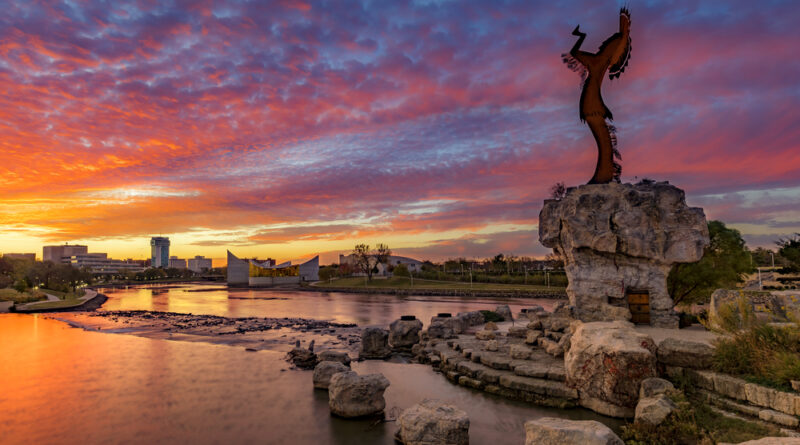History Of Wichita Kansas
Wichita, Kansas, is a city with a rich history that dates back to the late 19th century. The area that would become Wichita was originally inhabited by the Wichita tribe of Native Americans, who were known for their skilled hunting and agriculture. The tribe lived in the area for centuries before European settlers arrived.
In the early 1800s, European settlers began to move into the area and establish trading posts and settlements. One of the first notable settlers was a man named William Eaton, who established a trading post near the present-day intersection of Douglas and Market streets in 1864. This trading post was the beginning of what would become the city of Wichita.
The city officially incorporated in 1870, and quickly grew as a center for trade and commerce. The arrival of the railroad in 1872 helped to spur this growth, as it made it easier for goods to be transported in and out of the city. Wichita quickly became known as the “Gateway to the West,” and was a major stop on the cattle drive trail. The city’s location on the Arkansas River also made it an important hub for transportation and trade.
In the late 19th and early 20th centuries, Wichita experienced a period of rapid industrialization. The city became a major center for aircraft manufacturing, with companies such as Boeing and Cessna basing their operations there. This period of industrial growth helped to make Wichita one of the wealthiest cities in the state, and it continues to be a major center for manufacturing and industry to this day.
During World War II, Wichita’s aircraft manufacturing industry played a crucial role in the war effort, producing thousands of planes for the military. After the war, the city’s economy diversified and evolved, with the growth of industries such as healthcare and education.
Wichita’s history is not only marked by economic growth, but also by social progress. The city has a long history of civil rights activism, starting with the abolitionist movement in the 19th century, through the Civil Rights Movement in the 1960s. Wichita was also a major center of the feminist movement in the 1970s, with the founding of the first rape crisis center in the state.
In recent years, Wichita has been working to revitalize its downtown area, and has been successful in attracting new businesses and residents. The city has also been investing in its arts and culture scene, with the opening of a new performing arts center and the expansion of the Wichita Art Museum. The city is also home to several historical sites such as the Old Cowtown Museum, which tells the story of the city’s early days as a cattle town, and the Kansas Aviation Museum, which showcases the city’s rich history in aircraft manufacturing.
Today, Wichita is a diverse and vibrant city that is proud of its rich history. It continues to be a major center for trade and industry, and is also a great place to live, work, and play. The city offers a high quality of life with a low cost of living, a strong job market, and a wide range of recreational and cultural activities. Wichita has come a long way since its humble beginnings as a trading post, and it continues to evolve and grow as a city.
Discover more from City Towner
Subscribe to get the latest posts sent to your email.




